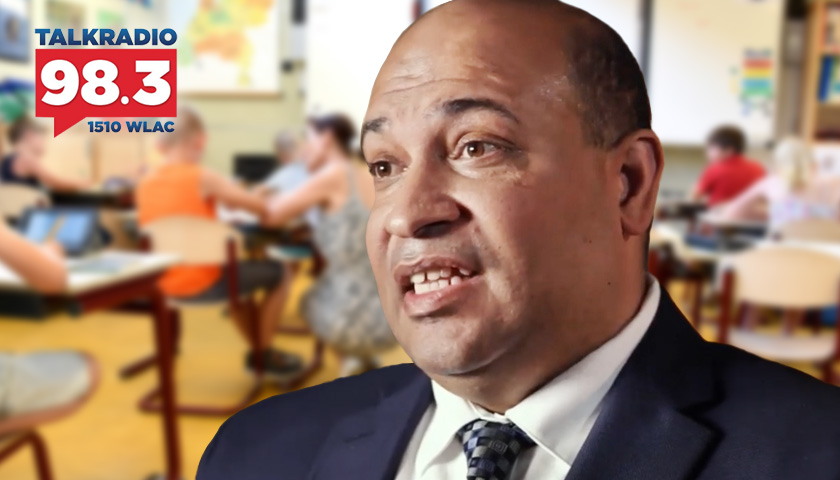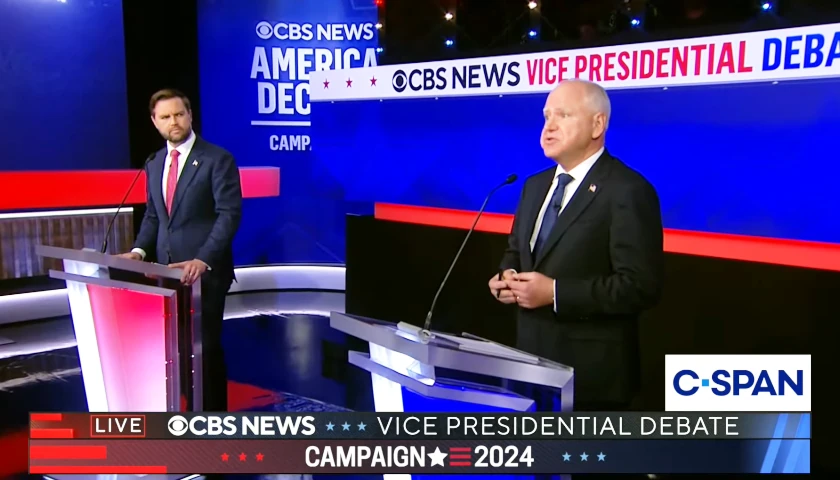Live from Music Row, Wednesday morning on The Tennessee Star Report with Michael Patrick Leahy – broadcast on Nashville’s Talk Radio 98.3 and 1510 WLAC weekdays from 5:00 a.m. to 8:00 a.m. – host Leahy welcomed American Classical Education’s Phil Schwenk in studio to discuss the process by which a charter school application is accepted and how much a school would save taxpayers of growing Tennessee counties.
Leahy: In studio with us, our very good friend, Phil Schwenk, our favorite Quaker, Penn graduate, who’s also working with American Classical Education and will be a principal of one of these five schools. And five counties. And you’re describing the process whereby you get the opportunity to get approved by the local school board.
Schwenk: Absolutely.
Leahy: So you’ve put the applications in and where are we right now with these?
Schwenk: The applications have been submitted as of February 1st, got it. So all these districts have the application.
Leahy: Five weeks ago.
Schwenk: Yes. And it gives them time to look over this 500-page plus behemoth with all.
Leahy: And I’m sure they read every single page. I can’t wait to read page 385 of this behemoth. (Laughter)
Schwenk: Yes, I’m sure that’s what’s happening. And they do it the first day they get it. But yeah, so it gives them time to look at it. And then basically we have a setting where we end up being in front of them addressing any questions that they might have about it with what is called capacity hearings.
Leahy: It’s a capacity hearing. Do you have a capacity hearing on the horizon?
Schwenk: Yes. In fact, we have two next week. Where are they? On the 15th is Montgomery, and on the 16th is Rutherford County.
Leahy: Okay. So what happens in a capacity hearing? Is it before the school board?
Schwenk: It is.
Leahy: Is it a special session of the school board? Is it open to the public?
Schwenk: Yes, absolutely.
Leahy: You got this 500-page behemoth that I’m sure they’ve studied from beginning to end that you’ve put together. What kind of questions do they ask at the capacity hearing?
Schwenk: They have a rubric that’s been provided for them that they’re supposed to judge the application by.
Leahy: So the rubric is a set of questions and standards to be met. Who gives them that rubric, that standard?
Schwenk: It generally comes from the state. Of course, they can come up with rubrics of their own to look at, but it’s supposed to be something that comes through state law.
These are the things that a school is supposed to have and it has everything from the academic plan to the operations, finances, and everything that makes a school a school. And the questions they have, they have to do with those areas depending on where they see as either strengths or deficiencies in application to see clarity.
Leahy: You are the lead person there?
Schwenk: Joel Schellhammer. The two of us will be there.
Leahy: He is the overall head of American Classical American Education? And so you go in, and they ask these questions, and then how long do these capacity hearings take typically?
Schwenk: About an hour and a half.
Leahy: Not that long. What happens next?
Schwenk: Then we answer the questions and then we have to wait a couple of weeks to see what they decide. So by late April or early May, we should know if our schools have been approved in these localities.
Leahy: Oh, okay. So it’s that quick? Is it a majority vote or?
Schwenk: Yes, absolutely.
Leahy: And will you have these capacity hearings in all five counties this month?
Schwenk: No, we have three this month, two next month.
Leahy: But by the end of April, all the capacity hearings will be completed.
Schwenk: Absolutely.
Leahy: And you should know by the end of May or June…
Schwenk: Oh, by then, definitely.
Leahy: What the school boards are gonna decide? I’m particularly interested in Maury County because I live in Spring Hill, where two-thirds of it is in Williamson County, and a third is in Maury County. And I live in the Williamson County side of it. By the way, just as an aside, you wanna talk about population growth?
Oh my goodness. I saw a list of the largest cities in Tennessee. Clarksville is the fourth largest, with 170,000 people roughly up in Montgomery County. Murfreesboro is the fifth largest, with 165,000 people, in Rutherford County. Wow! And then Spring Hill, which is part in Williamson, part in Maury County, is like the 14th largest city. It’s about 56,000 people. It’s added 6,000 people in three years.
Schwenk: Oh, yeah. No. Rutherford and Maury County are the fastest-growing counties.
Leahy: They’re growing like crazy now. I’ve talked to a lot of people in Maury County, and they are having a very hard time providing schools to keep up with the population and then funding for those schools. Just even building them. If the school board were to approve your charter application there, how much money would the county have to build a charter school there?
Schwenk: Zero.
Leahy: Zero?
Schwenk: We would do that. We’re either going to build a facility or refurbish an existing building.
Leahy: So there’s zero expense?
Schwenk: We’d be saving the district tens of millions.
Leahy: Just from a pure dollars and cents perspective, your charter school would be saving taxpayers in these fast-growing counties a huge amount of money. We’re talking what, $10-$15 million bucks?
Schwenk: Or more,$30-$50 to build schools. They are expensive. Schools are expensive.
Leahy: Wow. And so if you build one, where do you get the money?
Schwenk: We have several private donors. So we have people who’ve established a fund for us to use.
Leahy: That’s a lot of dough.
Schwenk: Yes. It’s a lot of dough that’s able to get more dough. That’s how money works. But yes, we’ve had very generous donors for American Classical Education, and that’s what gives us the ability.
Leahy: My immediate reaction to this is, and this is part of the Barney Charter School Initiative or related to it?
Schwenk: Yes, definitely, our curriculum and our support of the teachers is through the BCSI network, but American Classical Education is where the money would come from a separate entity.
Leahy: But it’s a proven commodity.
Schwenk: Oh, hands down.
Leahy: And the outcomes from people that use the schools that used this curriculum are very good for students, right?
Schwenk: Oh, absolutely. That’s how I got into this work. I started at a BCSI school in Toledo. There are currently 22 BCSI schools. So you can look at the data and they’ve all done very well. That’s the type of school that we are hoping to start here in Tennessee.
Leahy: You’ve got a great track record. It’s not going to cost taxpayers a dime. This fits in the category of a brainer.
Schwenk: I think I struggle with, and I know this personally, these schools are very good. I love kids, the parents, this work, and the teachers. You are bringing something that is a known commodity, it is a good school, it benefits students and makes them more knowledgeable and good. You have decent good people that come out of these schools and we are going to save you a significant amount of money.
Listen to today’s show highlights, including this interview:
– – –
Tune in weekdays from 5:00 – 8:00 a.m. to The Tennessee Star Report with Michael Patrick Leahy on Talk Radio 98.3 FM WLAC 1510. Listen online at iHeart Radio.
Photo “Phil Schwenk” by Northwest Ohio Classical Academy. Background Photo “Students in Class” by Max Fischer.





